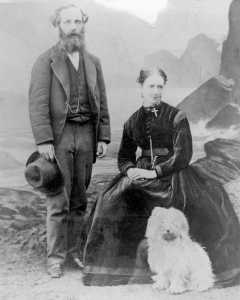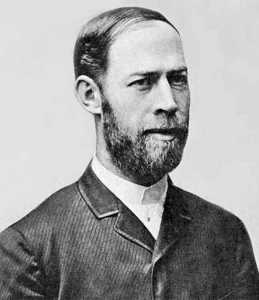The origins - IK1TGV
Menu principale:
- Home Page
- BIOGRAPHY
- THE TGV
- RADIO HISTORY
- RADIO STATION
- OUTDOOR ACTIVITY
- FRIENDS AND RELATIVES
- PHOTOGRAPHY
- PAINTING
- MOUNTAINEERING
- MORE HOBBY
- WINES
- ENGINEERING PROFESSION
- To Contact me:
- Link :
The origins
The history of radio
Radio communications, as well as any other great invention of man, are the result of a development of applications and discoveries of different nature; development, in particular, the participation of technicians and scientists from different countries.
At the beginning of 1800, Faraday discovered that magnetic fields variables can induce electric fields.
In 1873, the "Treaty of electricity magnetism," Maxwell stated that the electromagnetic waves and the bright ones have equal nature and propagate at the same speed (300,000 km / s). The "radio waves" (The term "radio", adopted for the first time in 1906 at a conference in Berlin, comes from "radiation") are long, while light waves are shorter.
In 1887, H. Hertz was able to produce in the laboratory electromagnetic waves (calling them "Hertzian waves"); later, together with A. Righi, was able to reproduce the phenomenon of diffraction, refraction and reflection characteristic of the light, by means of a metal coil that radiated and noted a short electromagnetic wave.
Branly in 1890 built the first device to receive electromagnetic waves at a certain distance (detector Coherer); to this discovery, the first rudimentary antennas of the Russian Popov and the receiver-
In 1896 Marconi is celebrating his "experiments Pontecchio," driving signals up to 2400 m away. A few years later, in 1901, the Italian scientist transmits the first telegraphic connection across the Atlantic.
In 1906, Fessenden made the first radio link, transmitting music and words up to 25 km away.
In 1923, following the studies of Marconi on shortwave, Conrad realizes a repeater to transmit programs from station KDKA in Pennsylvania to that KDPM Ohio.
In 1924, through the work of Appleton, it was discovered that radio waves bouncing between the ionosphere (a band "ionized" that surrounds the Earth) and the earth's surface for several kilometers.
In 1919 F. Conrad made the first radio station in Pittsburg, Pennsylvania. At the same time and in the same place, in the Westinghouse warehouse, the first radio station with regular broadcast (KDKA) was founded.
In Italy broadcasting has long been used for military purposes, the first radio station was set up in 1924 (URI). Following the birth of new stations, the fascist government creates the EIAR. the new instrument soon reveals its full propaganda potencial. and in fact, in 1937, the government creates for this purpose "Radio Urbe".
At the end of World War II, the EIAR assumed the current name RAI (Radio hearings Italian).
For a long time the radio has been an important means of communication, information and entertainment, and his voice has left important traces in society and
culture, conveying ideas and creating thoughts

James Clerk Maxwell e Katherine Maxwell 1869

Heinrich Rudolf Hertz 1894
Music : Jacques Offenbah -